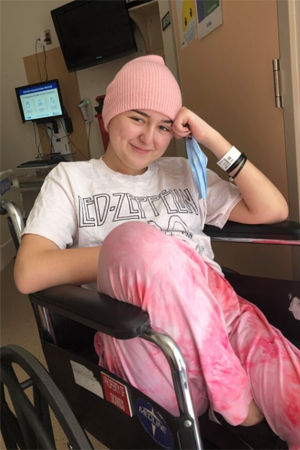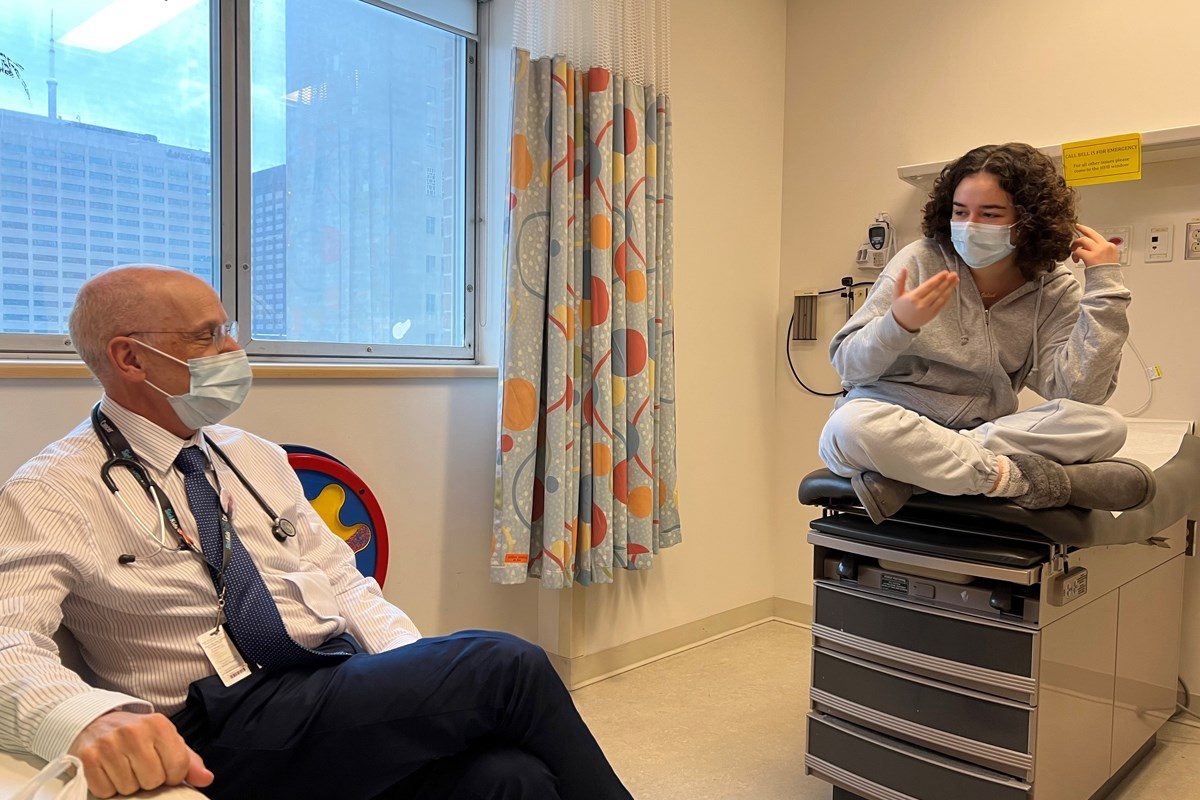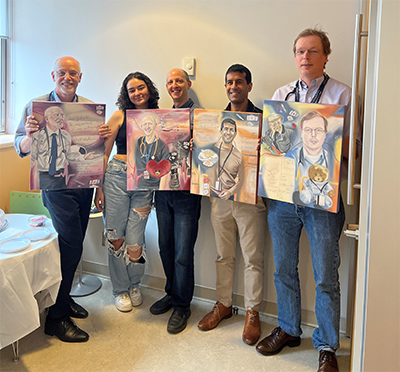Liquid biopsy improves early cancer detection and diagnosis in patients with LFS
Summary:
Research shows a blood sample analysis may detect cancer earlier in individuals with Li-Fraumeni syndrome.
In 2021, at age 14, Juliet Locke was diagnosed with leukemia – a condition which new research shows could have been diagnosed months earlier.

Shortly after birth, Juliet was diagnosed with Li-Fraumeni syndrome (LFS), an inherited genetic condition associated with an almost 100 percent lifetime risk of developing cancer. Juliet’s mother, Luana Locke, also has LFS and has already lived through five different cancer diagnoses.
Using a technique known as a “liquid biopsy,” which looks for DNA fragments left by cancerous cells in blood samples, researchers at The Hospital for Sick Children (SickKids), Ontario Institute for Cancer Research (OICR), and University Health Network (UHN) have found a new way to detect cancer earlier in people with LFS – often even before a tumour becomes visible, or symptoms start.
Published in Cancer Discovery and led at SickKids by Dr. David Malkin, Senior Staff Oncologist and Senior Scientist in the Genetics & Genome Biology program, the researchers analyzed 170 blood samples from 82 individuals with LFS collected over several years, including from Juliet. Their findings show that early signs of Juliet’s leukemia were present months earlier and provide a proof-of-principle framework that may support the detection of specific cancers earlier for other individuals with LFS.
“Until now, the ways we did surveillance in children with cancer or in children with a genetic predisposition to cancer have been burdensome to families and the health care system – relying on multiple visits to the clinic, imaging tests and imprecise blood tests,” says Malkin, who is also Co-Director of the Cancer Genetics Program at SickKids. “Now, we can use a simple blood test to identify when, and sometimes where, a cancer is occurring. That is precision.”
Simple blood draw may improve early diagnosis and reduce invasive tests in people with LFS
LFS is caused by changes in the TP53 gene, which encodes a protein that helps to prevent tumour formation and is commonly referred to as the “guardian of the genome.” Without this genetic guardian, people with LFS can develop multiple types of cancer throughout their lives, including tumours affecting the breast, soft tissue, brain and other organs.
For Juliet and other children with LFS, annual brain and whole-body MRIs and more frequent blood draws, ultrasounds and physical exams are essential for early cancer detection as part of a cancer surveillance program developed at SickKids known as the Toronto Protocol. Many families travel from miles away to come to SickKids or their local hospital for testing. It can be a stressful experience – compounded by the necessity of returning every three months and the fact that very young children with LFS require general anesthetic for their annual MRI.
This study may ultimately eliminate the need for these tests, and at the same time increase the specificity and accuracy of cancer diagnosis.
“This is a full circle moment for us. From being part of the first Toronto Protocol to what may now be the next step in early detection and diagnosis for families with LFS, our family has relied on the advancements made at SickKids and the Princess Margaret,” says Luana. “Regular scans and check-ups are routine when you have LFS, but the ability to predict when and where cancers develop rather than react when one has already developed would be life changing.”

The future of cancer screening
For Juliet, whose leukemia has since gone into remission, the years of clear scans before her diagnosis highlight the importance of access to early detection programs.

“Even though I have LFS, I never really felt cancer anxiety until after I was diagnosed,” Juliet says. “While my check-ups are reassuring, getting more precise diagnoses earlier is the next level in care.”
A clinical trial will be conducted in the coming months to further test this approach in the hope of finding their cancer earlier and will include patients with different type of types of high-risk cancer predisposition syndromes like LFS, Lynch syndrome, neurofibromatosis and hereditary breast and ovarian cancer.
“These promising findings can be extended to all hereditary cancer syndromes to help improve the accuracy of cancer detection, especially for common tumour types, utilizing several types of analyses that leverage different biological measurements,” Malkin says.
The research team thanks the generosity of the patients who participated in this study, without whom this breakthrough work would not have been possible.
This work was supported by the Terry Fox Research Institute and Terry Fox Foundation, Canadian Institutes for Health Research (CIHR), TD Ready Challenge, the McLaughlin Centre at the University of Toronto, Shar Foundation, FDC Foundation, Bhalwani Family Charitable Foundation, Karen Green and George Fischer Genomics and Genetics Fund, Lindy Green Family Foundation, the Devine/Sucharda Charitable Foundation, the Garron Family Cancer Centre, Soccer for Hope, The Princess Margaret Cancer Foundation and the Ontario Institute for Cancer Research (OICR) and SickKids Foundation.
Collaborator quotes
"We used a combination of genomic, fragmentomic and epigenetic methods to analyze patients’ blood samples at a molecular level,” says Dr. Trevor Pugh, Senior Scientist at Princess Margaret Cancer Centre and Director of the Ontario Institute for Cancer Research (OICR) Genomics Program, where blood samples were analyzed. “The key to these long, multi-year studies is keeping up the momentum and building infrastructure to enable comparisons of multiple types of data over time. Here, we were able to detect multiple different types of DNA changes in blood that were a telltale sign that cancer was developing somewhere in the body months before cancer would show up in imaging.”
“Each of these methods were able to detect cancer-associated signals in the samples, but the integration of multiple analyses provides a more holistic view of tumour DNA events. This more robust approach is paramount in early cancer detection where the stakes are high.” says Dr. Raymond Kim, Medical Director of Cancer Early Detection at the P.M.’s Bhalwani Familial Cancer Clinic and lead of the Ontario Hereditary Cancer Research Network at the OICR. “To improve the accuracy of early stage cancer diagnoses, such genetic tests can be used to complement other clinical screening methods, and they can be performed at a higher frequency.”

